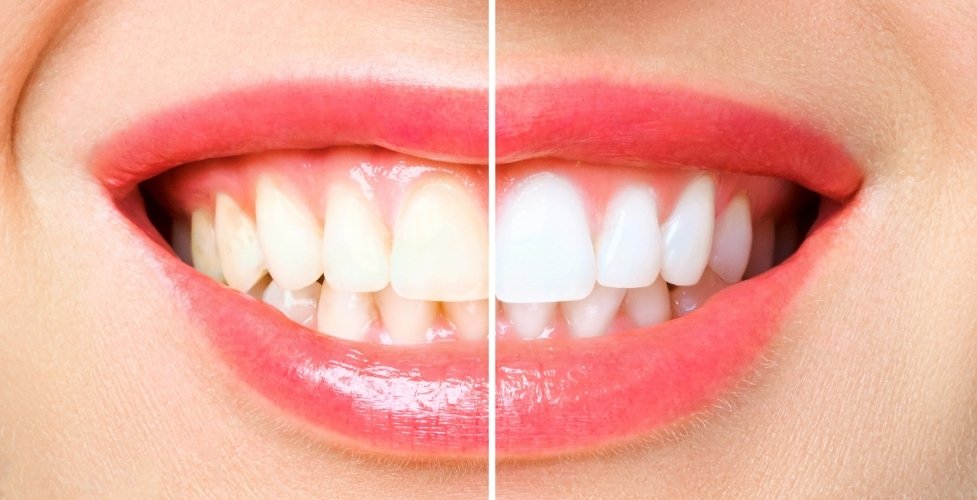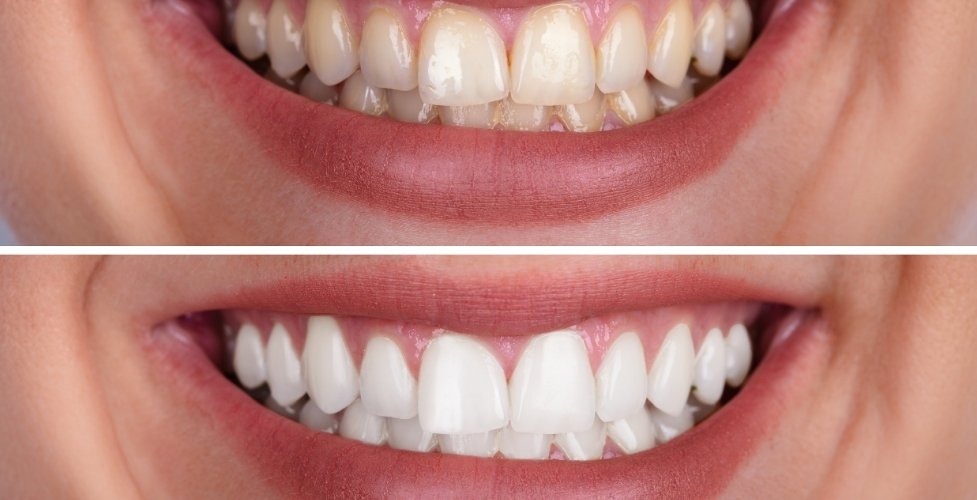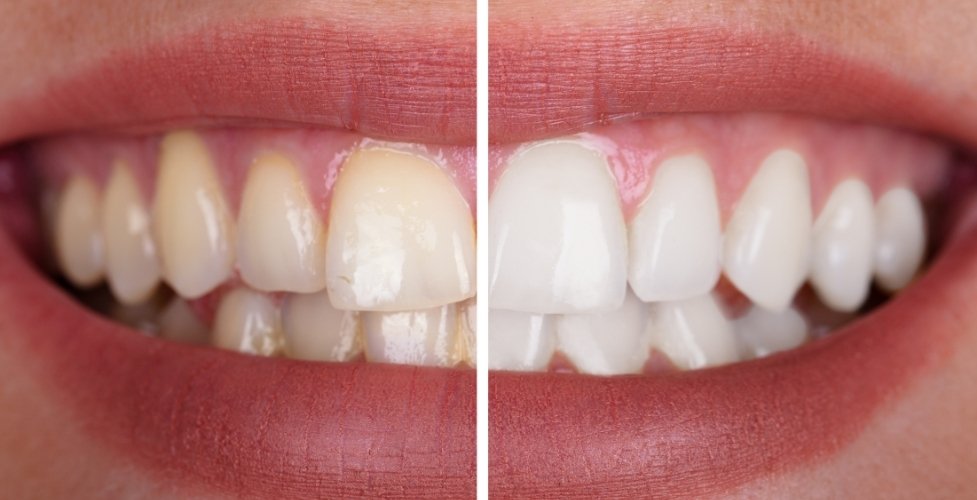3609 Jamison Way Castro Valley, CA 94546

Congratulations on your decision to enhance your smile with teeth whitening! Achieving a brighter, more radiant smile is undoubtedly exciting, but proper aftercare is crucial to maintain those dazzling results. In this comprehensive guide, we’ll explore essential aftercare tips and dietary recommendations to ensure your teeth stay vibrant and healthy post-whitening. From what to eat and drink to strategies for reducing sensitivity, we’ve got you covered. Let’s dive in!
Teeth Whitening Aftercare Tips & Diet:
After undergoing teeth whitening, your diet plays a crucial role in maintaining the brightness of your smile. To ensure the longevity of your results, it’s important to be mindful of what you eat and drink. Here’s a detailed guide on what foods and beverages you can safely consume after teeth whitening:
1. What Can You Eat After Teeth Whitening?
After teeth whitening, focus on incorporating soft, non-staining foods into your diet. These include:
Plain Yogurt: Rich in calcium and protein, plain yogurt is not only gentle on your teeth but also promotes oral health.
Boiled or Steamed Vegetables: Opt for soft, cooked vegetables such as carrots, squash, and spinach. These veggies are nutritious and won’t cause staining.
Skinless Chicken or Fish: Lean proteins like chicken and fish are excellent choices as they are soft on the teeth and provide essential nutrients.
Soft Fruits like Bananas or Applesauce: Enjoy soft fruits like bananas, applesauce, or ripe melons. These fruits are not only gentle on your teeth but also hydrating and packed with vitamins.
Incorporating these soft, non-acidic foods into your meals will help protect your newly whitened smile while providing essential nutrients for overall health.
2. What Can You Eat After Zoom Teeth Whitening?
Following Zoom teeth whitening, it’s essential to continue consuming soft, non-staining foods to avoid disrupting the whitening process. Additionally, staying hydrated is key to flushing out any residual whitening gel and maintaining oral health. In addition to the aforementioned soft foods, consider including the following in your post-whitening diet:
Smoothies: Blend soft fruits with yogurt or milk for a refreshing and nutritious beverage that won’t compromise your results.
Soup: Enjoy comforting soups made with broth and soft vegetables. Opt for clear broths to avoid staining.
Eggs: Prepare scrambled eggs or omelets for a protein-rich meal that’s easy on the teeth.
By focusing on soft, non-staining foods and staying hydrated with water, you can support the effectiveness of your Zoom teeth whitening treatment and enjoy a bright, healthy smile.
Remember, maintaining good oral hygiene practices, including regular brushing and flossing, is essential for preserving your whitening results. If you have any concerns or questions about your post-whitening diet, consult with your dentist for personalized advice and recommendations.
Foods or Drinks to Avoid after Teeth Whitening Treatment:
Certain foods and beverages have the potential to stain your teeth or cause discomfort after whitening treatment. Here’s what to steer clear of:
Dark-colored foods and drinks like coffee, tea, and red wine
Acidic foods like citrus fruits and tomatoes
Hard and crunchy foods that may cause sensitivity, such as chips or nuts
By avoiding these items, you can safeguard your newly whitened smile and extend the longevity of your results.
Can I Drink Alcohol After Teeth Whitening?
While it’s tempting to celebrate with a glass of wine or a cocktail after teeth whitening, it’s best to wait before indulging. Alcohol, especially colored varieties like red wine, can stain your teeth and compromise your results. Aim to wait at least 48 hours before consuming alcohol post-whitening to ensure optimal outcomes.
Can I Drink Red Wine After Teeth Whitening?
Red wine is notorious for staining teeth, making it a beverage to avoid immediately after teeth whitening. If you must indulge, wait at least 48 hours and rinse your mouth with water afterward to minimize the risk of staining.
Brush My Teeth After Whitening?
Brushing your teeth after whitening is essential to remove any residual whitening gel and maintain oral hygiene. However, it’s advisable to wait at least 30 minutes after treatment to allow your teeth to settle before brushing gently with a soft-bristled toothbrush and non-abrasive toothpaste.
How to Reduce Teeth Sensitivity after Whitening and Brushing Your Teeth:
Teeth sensitivity can be a temporary inconvenience following whitening treatment, but there are several effective strategies to alleviate discomfort and promote oral health:
1. Use a Toothpaste Formulated for Sensitive Teeth:
Switching to a toothpaste specifically designed for sensitive teeth can help minimize discomfort. These toothpaste contain ingredients like potassium nitrate or strontium chloride, which work to soothe nerve endings and reduce sensitivity over time.
2. Avoid Hot or Cold Foods and Beverages:
Temperature extremes can exacerbate tooth sensitivity, so it’s best to avoid consuming hot or cold foods and beverages immediately after whitening or brushing your teeth. Opt for lukewarm or room temperature options to minimize discomfort.
3. Rinse with a Fluoride Mouthwash:
Rinsing with a fluoride mouthwash can help strengthen tooth enamel, reducing sensitivity and protecting against cavities. Choose a mouthwash that contains fluoride and use it regularly as part of your oral hygiene routine.
4. Apply Desensitizing Gel as Recommended:
If you experience persistent sensitivity after whitening, your dentist may recommend applying a desensitizing gel. These gels contain ingredients like potassium nitrate or fluoride, which help block nerve signals and strengthen tooth enamel. Follow your dentist’s instructions for application to ensure optimal results.
Final Thoughts on Teeth Whitening Aftercare:
It’s crucial to exercise caution regarding your dietary choices immediately following teeth whitening to preserve the pristine whiteness of your smile. For the initial hours and days post-treatment, steer clear of foods and beverages known to stain teeth, such as berries, pomegranates, cherries, wine, coffee, tea, and fruit juices. Additionally, avoid items containing artificial or natural colorants, including beetroots, spinach, and tomato-based sauces. Adhering to these guidelines ensures your teeth maintain their brightness for an extended period. Remember, if you’re unable to adhere to this diet, reconsider undergoing teeth whitening, as it may compromise the treatment’s effectiveness.






